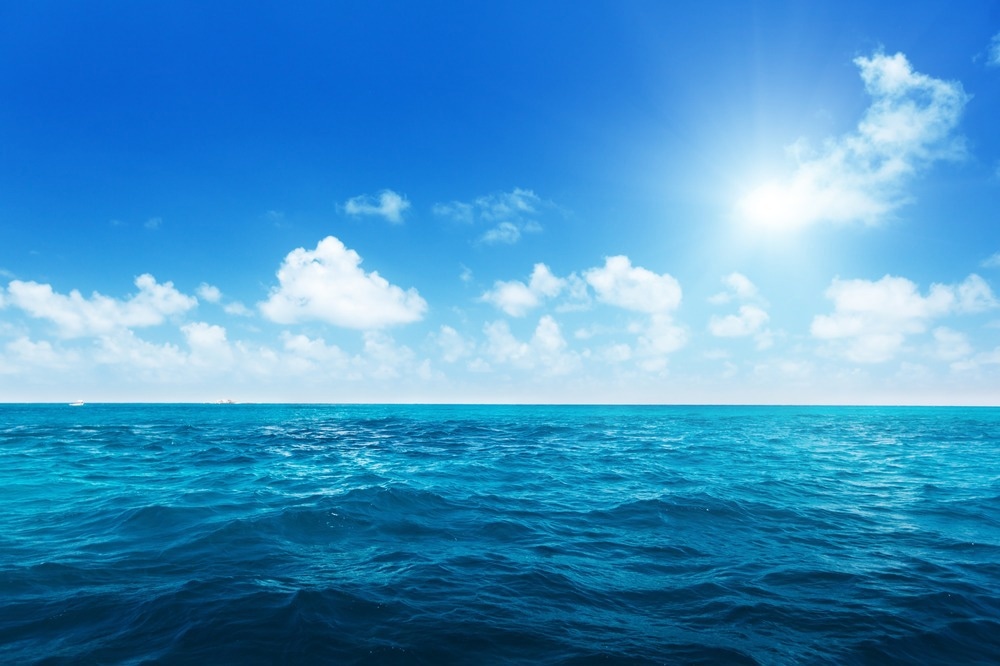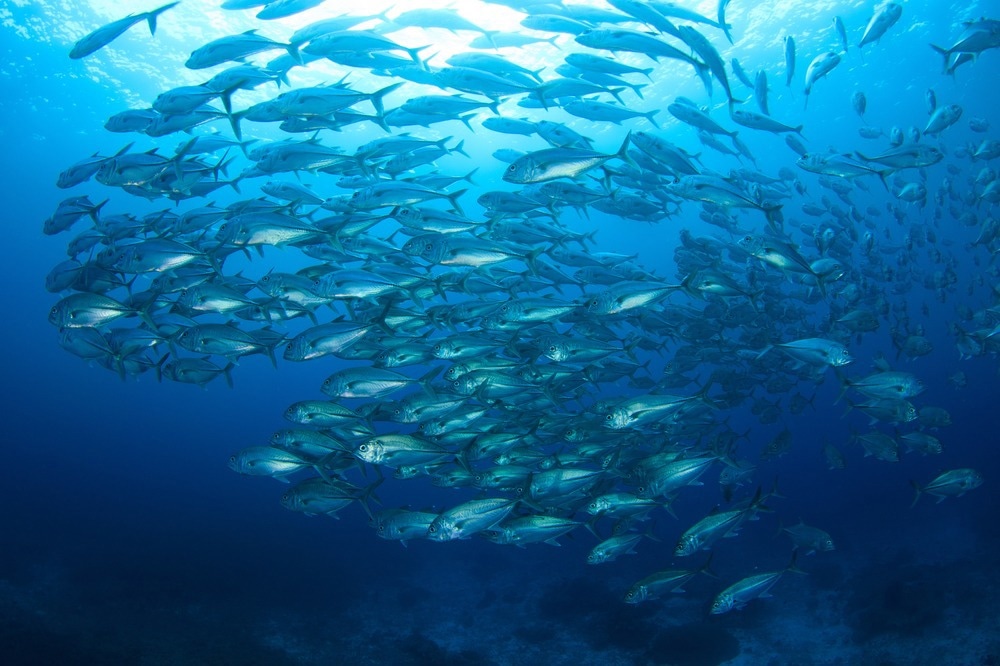The ocean covers more than two-thirds of the planet. It is the source of all life on Earth and continues to play a vitally important role in supporting that life. The ocean produces around half of the planet’s oxygen, is a natural carbon sink, is home to most of the Earth’s species, and is the primary source of protein for over a billion people. It is also a job creator for more than 40 million people. Humans are deeply connected with our oceans, whether they live near the sea or not. We rely on it to support our basic existence, and now, more than ever, we need to respect the ocean and help protect and restore it.

Image Credit: ESB Professional/Shutterstock.com
The Human: Ocean Relationship
Humans are drawn to water. New research has revealed that looking out onto the ocean can alter our neural activity. When watching the ocean, the frequency of our brain waves change, putting us into a light meditative state. Another found that those who live by the coast have an improved sense of physical health.
The relationship between humans and the ocean is complex. Water impacts every aspect of human life. The oceans supply a source of fresh water and oxygen, absorb carbon dioxide from the atmosphere, moderate the climate and impact our weather, provide a source of food and means of travel, and even impact our health.
In a panel commissioned by A Sustainable Ocean Economy, it was discussed that the values that underpin our relationship with the ocean are usually non-monetary and contribute to “non-material dimensions of wellbeing”. Broader human flourishing often results from nurturing our relationship with the ocean. Enhancement to our cultural and social identity, a sense of place, occupational pride, self-respect, spirituality, mental and physical health, and a sense of security are the common positive outcomes of nurturing our relationship with the ocean.

 How is Pollution Changing the Chemistry of the Ocean?
How is Pollution Changing the Chemistry of the Ocean?
Our Connection to the Ocean
Above, we discussed how the ocean has the power to change our brain waves, inducing a light mediative state. This connection, it seems, runs deep. Studies have also shown that the color blue can boost our creativity, which may explain why, throughout the ages, artists and writers have been inspired by the sea. It is believed that being by the sea can reduce stress and anxiety, and there are many theories that being by the sea or in it can help cure several ailments. In many ways, humans seem to have an ancient affinity for the sea.
In fact, humans throughout history have often believed that the sea was a form of a god, the Greeks believed in Poseidon, Hydros, and Ceto, the sea goddess, and the ancient Egyptians believed in Anuket, Goddess of the Nile. The Hindu religion has Lord Varuna, the sea god. The Mayans, the Aztecs, and ancient Chinese mythology also have sea gods in their history.
The Ocean’s Sustenance
The ocean provides an essential source of sustenance for humans. Each year, around 17% of our total annual protein consumption is accounted for by seafood. This figure is much higher in coastal communities that account for around 40% of the world’s population.
By 2050, the world will need to produce double the amount of food it currently does to feed the growing population. With limited space on land to expand agricultural practices, the ocean may come to our rescue. Early humans relied upon the sea as a primary food resource much more than we do now. It is suggested that a shift back to relying on the sea as our primary source of nourishment will be important in helping the world meet food security goals. However, sustainable fishing practices must be adopted to protect our precious oceans.

Image Credit: SergeUWPhoto/Shutterstock.com
How does the Ocean Support Human Life?
The ocean is a powerful body. It supports human life in a plethora of ways. Not only does it provide us with an expansive source of food, but it brings us water by feeding into the rivers that irrigate the land; it produces the oxygen we need to breathe and mitigates the impact of human activities on the Earth by absorbing the carbon dioxide we produce.
The ocean also provides jobs and supports coastal economies. Aquatic plants, such as mangroves protect these coastal communities from extreme weather such as hurricanes and tsunamis.
The ocean supported our development as a species. Before planes and trains, humans explored the world via boat. Cultures and religions were shared, wars were fought, and the history of humans was written. Even now, 11 billion tons of freight are transported across the oceans each year. Due to its smaller carbon footprint, sea freight will likely become more important than air.
The ocean has always been a source of sustenance and support for humans, and there is an ancient connection that will likely endure and become even more important in the future.
Sources:
- A Sustainable Ocean Economy. The Human Relationship with Our Ocean Planet [online]. Available from: oceanpanel.org/.../...tionship%20with%20the%20Ocean%20Full%20Paper.pdf [accessed May 2022]
- Christina Heiser. 2017. NBC. What the beach does to your brain [online]. Available from: www.nbcnews.com/better/health/what-beach-does-your-brain-ncna787231 [accessed May 2022]
- Costello, C., Cao, L., Gelcich, S., Cisneros-Mata, M., Free, C., Froehlich, H., Golden, C., Ishimura, G., Maier, J., Macadam-Somer, I., Mangin, T., Melnychuk, M., Miyahara, M., de Moor, C., Naylor, R., Nøstbakken, L., Ojea, E., O’Reilly, E., Parma, A., Plantinga, A., Thilsted, S. and Lubchenco, J., 2020. The future of food from the sea. Nature, 588(7836), pp.95-100. https://www.nature.com/articles/s41586-020-2616-y
- Mehta, R. and Zhu, R., 2009. Blue or Red? Exploring the Effect of Color on Cognitive Task Performances. Science, 323(5918), pp.1226-1229. https://www.science.org/doi/10.1126/science.1169144
- Wheeler, B., White, M., Stahl-Timmins, W. and Depledge, M., 2012. Does living by the coast improve health and wellbeing?. Health & Place, 18(5), pp.1198-1201. www.sciencedirect.com/.../S1353829212001220?via%3Dihub
Further Reading
Last Updated: Jun 29, 2022